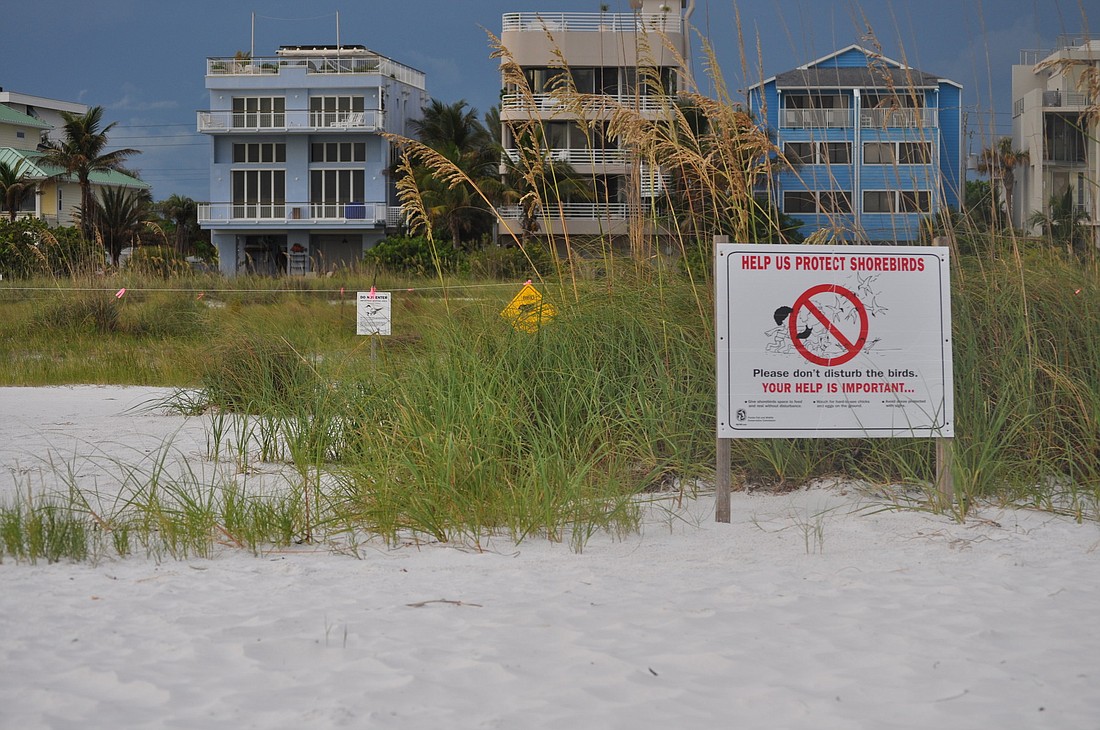- November 27, 2024
-
-
Loading

Loading

Snowy plover nesting season began mid-March, and volunteers tasked with protecting the birds have already faced hurdles.
A fire broke out the last week of March on the north end of Siesta Key beach. And the Florida Fish and Wildlife Conservation Commission is investigating vandalism to a special buffer volunteers placed on about a quarter-acre of dunes, said Sarasota County Sheriff’s Office Sgt. Scott Osborne, an island law-enforcement veteran.
Sarasota County Natural Resources and FWC provided funds for buffering, and the volunteers installed stakes 12 inches deep in the sand, ran twine around the area and erected signs. The unknown suspects took all of the signs.
Members of the Sarasota Audubon Society, who patrol the beach weekly to identify snowy plovers, have already spotted two pairs of snowy plovers exhibiting nesting behavior, said Siesta Key Association President Catherine Luckner.
“We do have a nest in a vulnerable spot,” she said.
Unlike sea turtles, snowy plover eggs are exposed if left unattended by their mother. Raccoons and opossums are predators that overflowing trashcans can attract to beach accesses. Last year, about 30 volunteers watched as a crow swoop down and fly away with a plover chick, Luckner said.
According to Ruth Ellen Peipert, board member with the Sarasota Audubon, in 2012, there were 12 confirmed plover nest documented on Siesta Key. According to Luckner, only one documented chick survived through adulthood last year.
Penalties for malicious acts against snowy plovers can result in up to $50,000 in fines and one year in prison under the Endangered Species Act. Even a poor football toss that disturbs a nesting area can result in up to six months in jail or $15,000 in fines, according to the U.S. Fish and Wildlife Services website.
The vandalism and fire incidents occurred within weeks of each other.
“They may have just been totally unrelated events,” Luckner said.
Sgt. John Walsh said during an April 4 SKA meeting the fire was likely accidental, and a discarded cigarette could have started it. But, the stake-removal incident required effort.
Osborne said there were no leads on that incident as of April 10, but the Sheriff’s Office will provide extra patrols to known nesting areas through the end of nesting season.
“There’s nothing about that area that should be upsetting to anybody,” Luckner said. “That’s what worried us — it didn’t seem like normal spring break behavior.”